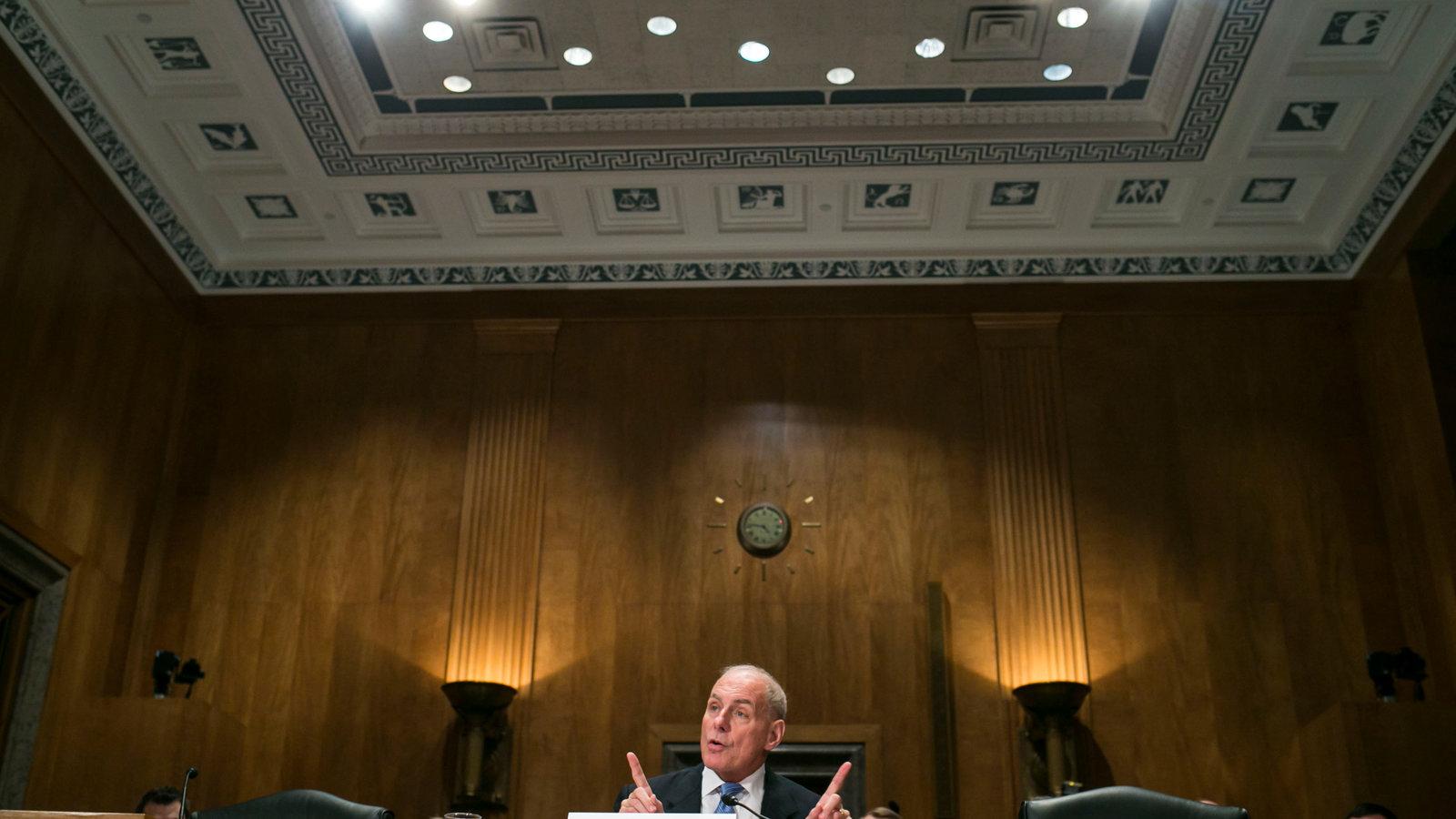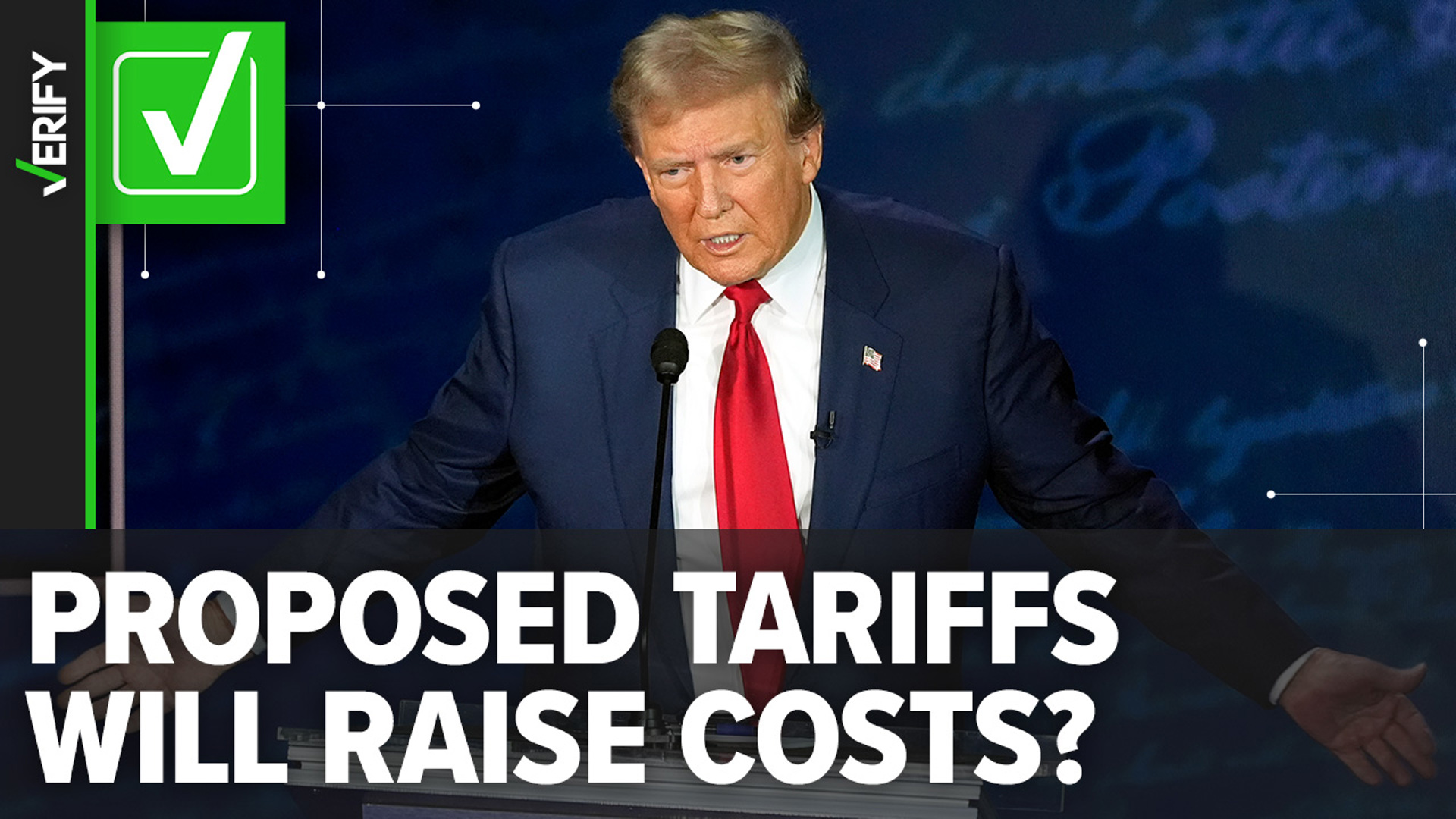New Legal Obstacles Stalled Trump's Immigration Enforcement

Table of Contents
Challenges to the Travel Ban
The Trump administration's travel bans, targeting citizens from several Muslim-majority countries, faced immediate and sustained legal challenges. These challenges exemplify how new legal obstacles significantly impacted the administration's immigration agenda.
Legal Battles and Judicial Review
Multiple lawsuits were filed against the travel bans, arguing they violated the Establishment Clause of the First Amendment (religious discrimination) and the Due Process Clause of the Fifth Amendment.
- Key Legal Arguments: The core arguments centered on religious discrimination, alleging the bans targeted Muslims disproportionately. Due process violations were also cited, arguing the bans lacked sufficient procedural safeguards for affected individuals.
- Key Court Cases: Hawaii v. Trump is a landmark case illustrating the legal battles. Lower courts blocked the bans, citing concerns about religious discrimination. The Supreme Court ultimately allowed a revised version of the ban to take effect, but with significant limitations.
The protracted legal battles significantly delayed the implementation of the travel ban and ultimately limited its scope, demonstrating the power of judicial review in shaping immigration policy.
The Impact on Immigration Policy
The legal battles surrounding the travel ban established a precedent for increased judicial scrutiny of future immigration executive orders. The challenges highlighted the limitations of executive power in the face of constitutional challenges.
- Shift in Public Opinion: The legal challenges fueled public debate, creating polarization around immigration issues and the role of the courts in policymaking.
- Lasting Effects on Executive Power: The experience underscored the importance of legally sound executive orders and the potential consequences of circumventing established legal processes in immigration enforcement. The travel ban's legal challenges set a precedent for greater judicial oversight of future immigration executive actions.
DACA and the Supreme Court
The Deferred Action for Childhood Arrivals (DACA) program, protecting undocumented immigrants brought to the U.S. as children, also faced significant legal challenges under the Trump administration. These challenges represent another example of the new legal obstacles that emerged.
Legal Challenges to DACA Rescission
The Trump administration's attempt to end DACA faced immediate legal opposition. The lawsuits argued the rescission violated principles of due process, equal protection, and reliance interests.
- Key Arguments: Lawsuits argued that ending DACA violated due process rights by abruptly terminating protections without sufficient notice or opportunity for comment. Equal protection arguments challenged the fairness of targeting a specific group of immigrants. Reliance interests emphasized the detrimental impact on individuals who had built their lives based on DACA's protections.
- Supreme Court Decision: The Supreme Court ruled that the administration's rescission of DACA was arbitrary and capricious, requiring a more reasoned process. This decision preserved DACA, at least temporarily.
The Ongoing Fight for DACA Recipients
The fight for DACA recipients continues, with ongoing legal and political battles. A legislative solution remains elusive.
- Number of DACA Recipients: Hundreds of thousands of individuals rely on DACA for work authorization and protection from deportation.
- Economic Impact: DACA recipients contribute significantly to the U.S. economy, making the program's future a matter of economic importance as well as human rights.
- Political Ramifications: The ongoing legal and political battles over DACA highlight the deep divisions within American society regarding immigration policy.
Limitations on Detention and Deportation
Legal challenges also limited the Trump administration's ability to expand detention and deportation efforts. These limitations stemmed from new legal obstacles arising from court challenges.
Challenges to Immigration Enforcement Practices
Legal challenges focused on detention conditions, due process violations during deportation proceedings, and sanctuary city policies. These challenges constrained the scope of immigration enforcement.
- Court Cases and Precedents: Several court cases successfully challenged the legality of prolonged detention without due process or adequate legal representation. Precedents established limitations on the government's ability to detain immigrants indefinitely. Specific cases highlighting inhumane detention conditions further constrained enforcement actions.
- Successful Legal Challenges: Numerous examples exist where individual cases resulted in the release from detention or the halting of deportation orders due to procedural errors or due process violations.
The Role of Federal Courts in Shaping Immigration Enforcement
Federal courts played a critical role in shaping the limits of immigration enforcement powers. Judicial decisions consistently checked attempts to expand detention and deportation without regard to due process.
- Impact of Judicial Decisions: Judicial decisions significantly impacted the administration's ability to implement its ambitious immigration enforcement agenda. The courts consistently upheld due process rights and constrained arbitrary actions.
- Effectiveness of the Trump Administration's Agenda: The limitations imposed by the judiciary demonstrably reduced the overall effectiveness of the Trump administration's immigration enforcement efforts.
Conclusion
The key legal obstacles discussed—challenges to the travel ban, the fight over DACA, and limitations on detention and deportation—significantly impeded the Trump administration's ambitious immigration enforcement agenda. Court rulings consistently checked executive power and underscored the importance of due process and equal protection under the law. These new legal obstacles reshaped the landscape of immigration enforcement and policy in the United States. Further research into specific court cases and legal arguments will provide a deeper understanding of this critical area and the ongoing evolution of immigration law. Understanding these "new legal obstacles" is crucial to analyzing the future of immigration enforcement and policy.

Featured Posts
-
 Living With A 77 Inch Lg C3 Oled Pros And Cons
Apr 24, 2025
Living With A 77 Inch Lg C3 Oled Pros And Cons
Apr 24, 2025 -
 Shifting Sands Chinas Lpg Imports Turn Eastward Due To Us Tariffs
Apr 24, 2025
Shifting Sands Chinas Lpg Imports Turn Eastward Due To Us Tariffs
Apr 24, 2025 -
 Elon Musk Doge And The Epa A Tesla And Space X Regulatory Battle
Apr 24, 2025
Elon Musk Doge And The Epa A Tesla And Space X Regulatory Battle
Apr 24, 2025 -
 Canadian Auto Industry Fights Back A Five Point Plan To Counter Us Trade War
Apr 24, 2025
Canadian Auto Industry Fights Back A Five Point Plan To Counter Us Trade War
Apr 24, 2025 -
 New Legal Obstacles Stalled Trumps Immigration Enforcement
Apr 24, 2025
New Legal Obstacles Stalled Trumps Immigration Enforcement
Apr 24, 2025
